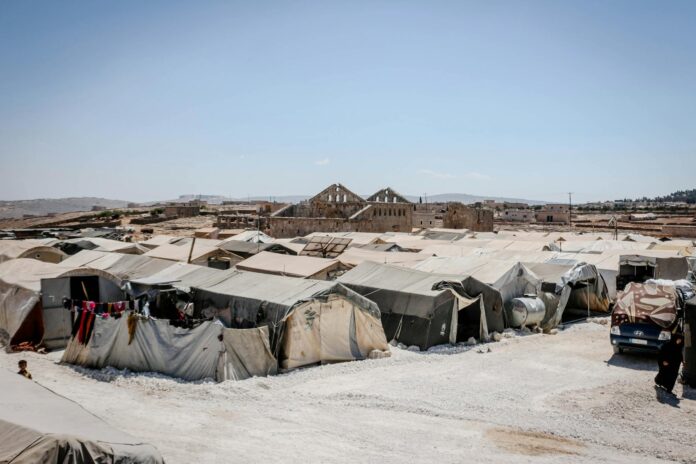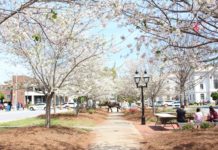A Mercer On Mission scouting trip recently took me to a refugee camp in the Middle East where more than 60,000 men, women and children had settled. The ever-present, ever-growing threat of danger forced them from their homes to seek safety and shelter across the border.
The hope of returning to their native land hung faintly in the distance; the reality of making the best of their new life was the pressing task at hand. So, homes were built. Friendships were made. Gardens were planted. Small businesses were launched. Thanks to the United Nations High Commission on Refugees, these refugees were intentionally, though patiently, making their way together to a new normal in a new home toward a new, if unknown, future.
Some years ago, there was a Mercer student who had been a refugee. Abraham was one of the Lost Boys of the Sudan. He and the other 20,000 boys had been driven from their homes and villages in southern Sudan by the vicious civil war that was sweeping the country.
Eight-year-old Abraham had been tending his family’s cattle in the pastures away from his home when the word spread that the rebel-militia, South Sudan People’s Defense Forces, had come, terrorizing the village, killing the men and kidnapping young boys, turning them into child-soldiers. Abraham knew he couldn’t go home. He had to run for his life with nothing but the shirt on his back.
He joined this massive wave of fleeing boys, most of whom were between the ages of 8 and 12, the oldest were 16. They traveled for more than a thousand miles through deserts and jungles, hoping to reach a refugee camp in Kenya.
They moved at night to avoid being spotted by roving bands of South Sudan People’s Defense Forces soldiers who were tracking them. Of course, traveling at night meant facing lions and other night hunters that stalked the darkness. Disease, exposure and dehydration were constant threats. The boys took turns leading, foraging for food, carrying the sick and burying the dead.
After nearly 18 months, Abraham and the other surviving Lost Boys reached the Kakuma Refugee Camp in Kenya. The resources in the camp were meager. The daily food ration was a cup of rice and three kernels of corn.
I once asked Abraham if the older boys ever took food from the younger boys, assuming that the survival impulse might prompt them to take advantage. Abraham shook his head. “Just the opposite,” he said. “The older boys gave their food to the younger boys.” In our culture, we are taught to take care of the community first, then ourself.
At some point in life, I suppose, we all become refugees in one way or another. A house is lost. A job is terminated. A loved one dies. A child leaves. A relationship ends. An illness strikes. The safety net tears. The guardrails are gone. The rules suddenly change. Without warning, we are refugees. We are displaced. We have to “flee away” — which is the literal meaning of the word, “refugee” — from the familiar, predictable and comfortable places where we have built our lives. We have become refugees.
The Lost Boys and those Middle Eastern refugees who have found a home across the border leave a path for us to follow during our journeys into exile, the times when we are displaced, pushed out of our home by forces beyond our control. They urge us to breathe and take one step at a time. We do not have to make the whole journey of our exile at once. Just take the next right step, day after day, with our eyes on the path of today and our hearts on the horizon of tomorrow. They call us to stay true to ourselves and to live our lives as fully and faithfully as we can while we journey toward a new normal. They inspire us to be grateful for what remains and what will be. Most of all, they urge us to take care of each other. Refugees almost never survive on their own, looking out for themselves; they survive as communities, looking out for each other.










